
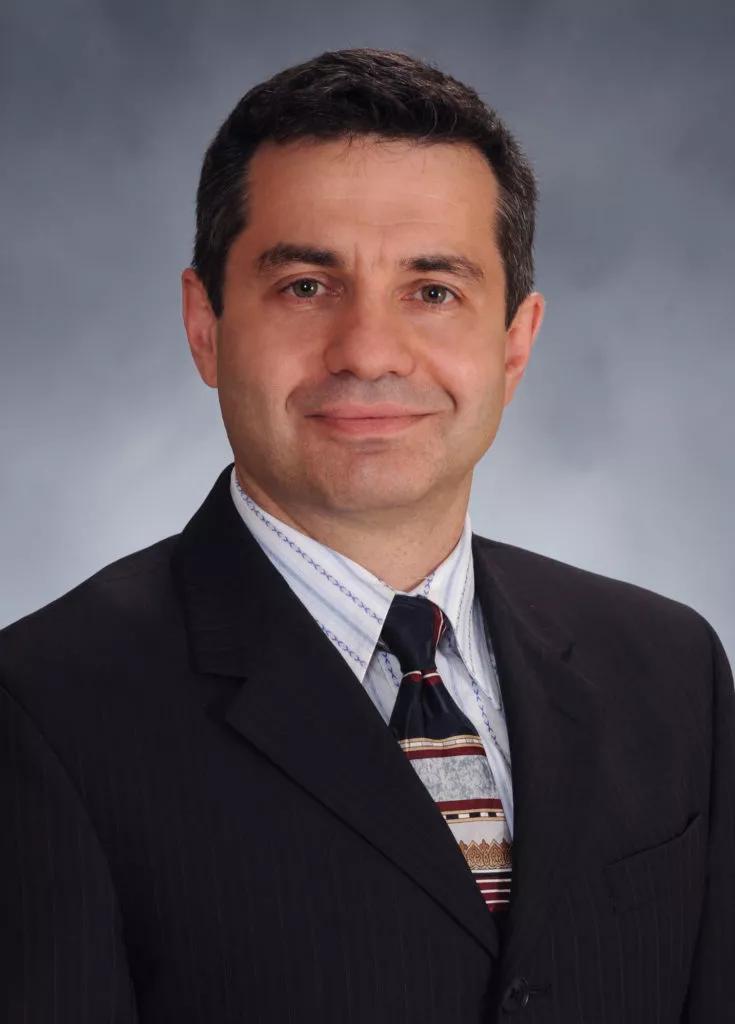
Image content: This image is available to view online.
View image online (https://assets.clevelandclinic.org/transform/4d9960f3-24c1-4b8f-a4c5-bbfc2fb5db96/YakubenkoValentin-photo-735x1024_jpg)
When Valentin Yakubenko, PhD (RES/MC’03) came to Cleveland Clinic from Ukraine in 1997 with his wife, Anna, and 5-year-old daughter, Irina, he was 27 years old and had just earned a doctorate in protein chemistry at the National Academy of Sciences in Kiev. However, he says, he knew nothing about cell biology and was very interested in the subject.
Advertisement
Cleveland Clinic is a non-profit academic medical center. Advertising on our site helps support our mission. We do not endorse non-Cleveland Clinic products or services. Policy
“I took an anatomy class when I was in 8th grade and was fascinated by the inner workings of the human body and how different diseases impact it,” he says. “I started to read and get more interested in molecular biology and applied directly to the biology program when I was applying to university. After getting my PhD in biochemistry, I was lucky to be invited by my former colleagues in Kyiv to join the Cleveland Clinic to continue my research.”
He was accepted for a postdoctoral fellowship under Edward Plow (Staff’92) in the Joseph J. Jacobs Center for Thrombosis and Vascular Biology, Department of Molecular Cardiology. His colleague who invited him, Tatiana Ugarova (Staff’92), had started at Cleveland Clinic some years before, and they were able to work together once again.
During his studies, Dr. Yakubenko says he most enjoyed “the science and process of research.” After five years, he was promoted to research associate, and then to project scientist and staff scientist. While he was on staff at Cleveland Clinic in 2009, he and his wife welcomed a son, Nicholas, now 13 years old.
In 2015, after receiving a $1 million grant for his research, Dr. Yakubenko accepted a position as an assistant professor in the Department of Biomedical Sciences at the Quillen College of Medicine. He is now a tenured professor, and he and his family live in Johnson City, Tennessee.
Dr. Yakubenko became a U.S. citizen, but he still loves and is deeply concerned about his native country and the safety of his family and friends as Ukraine is attacked by Russia. “It’s the most horrible thing that’s happened in my life,” he says. “I didn’t believe that war in Europe was possible after World War II.”In 1991, as a student in Kiev during the time that the Soviet Union was breaking apart, he marched with other students in the streets to protest and fight for Ukraine’s independence.
Advertisement
“Many have been passionate about independence for the last 30 years, and that can be seen through the Orange Revolution in 2004, the war against Russian separatists in 2014, and the current conflict,” he says. “Ukrainians are strong, and we have a mission – we want our independence, to be closer to the West, to be part of the European Union. It’s given us hope to see the actions taken by the world in response to the atrocities by Russia, but we need more help because we can all see the repercussions of this war is having on the world economy.”
Still, he remains optimistic. “I hope Ukrainians will soon live in a country that is independent, part of the European Union, and doesn’t live in fear that the Russians will launch missiles at them.”
Noting that millions of people have been displaced, he says, “we have family and friends in Ukraine whom we communicate with and try to help, and we send money. We brought my mom to the U.S. and invited two families to our house through a special government program, United for Ukraine. It’s a dream come true at a time of darkness for our family and so many other Ukrainians. We are really thankful for the United for Ukraine program that President Biden opened up to make it so easy for the women and children in my family to enter the U.S. and stay with us. The hard question now is what is next – they all hope to go back to their lives in Ukraine, but the men still can’t leave the country. We don’t yet know when or if it will ever be safe to return.”
Advertisement
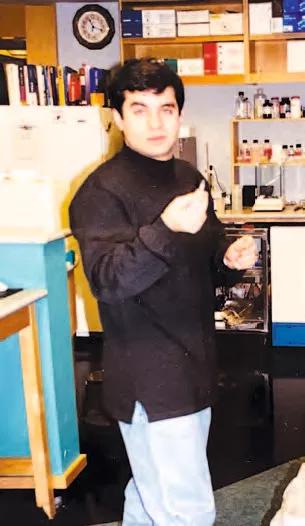
Image content: This image is available to view online.
View image online (https://assets.clevelandclinic.org/transform/63cae2db-8920-4b16-82ca-7c7a4359ea9d/2022-Issue-2-v2_jpg)
During and since his time at Cleveland Clinic, Dr. Yakubenko published numerous papers and garnered federal grants and national recognition for his work. He recalls his time at Cleveland Clinic fondly. “I learned not only how to do research but how to do it right in a multicultural environment,” he says. “Cleveland Clinic has a very high standard. Cell biology had a unique group of famous scientists working on coronary disease, including Martha Cathcart, PhD (RES/CELL’80) and Jonathan Smith, PhD (AN’76). I received grants for my research while I was there. Tatiana Byzova, PhD (Staff’96), now in the Department of Neuroscience, really helped me by supporting my research. After I left Cleveland, I continued with my research and received the Best Paper Award from the American Heart Association in 2016. I also received two grants from the NIH and the AHA. All of my work is related to my training at Cleveland Clinic. It built my career.”
Advertisement
Advertisement

Honoring Exceptional Achievement, Service and Leadership

We celebrate the exceptional achievements of four future alumni

Honoring Exceptional Achievement and Leadership
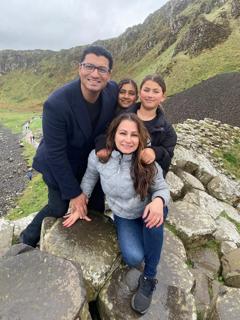
Meet Hardeep Phull, MD (CCLCM’11)
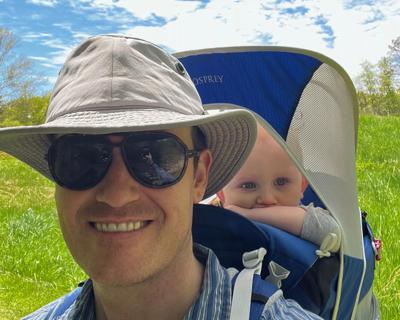
Meet William Tierney, MD, MS (CCLCM’16, OTO’18)
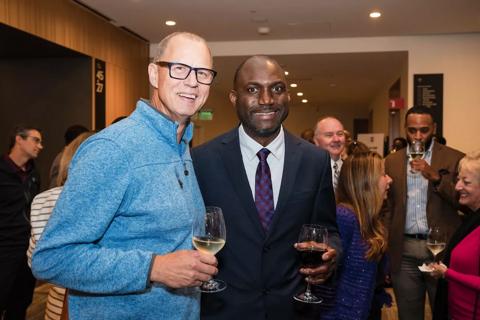
Meet Samuel Omotoye, MD (CARD/E'15)